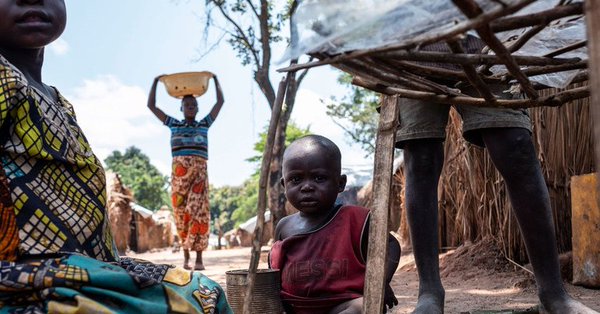
‘Fire-fighting approach’ to humanitarian aid ‘not sustainable’: Deputy UN chief
New York, Dec 13 (IBNS): With around one in every 60 people across the world caught up in a crisis that requires urgent humanitarian assistance, the UN Deputy Secretary-General Amina Mohammed told a top panel on the issue on Wednesday that maintaining a “fire-fighting approach is not sustainable” in the long term.
Although the international humanitarian system is more effective than ever, poverty, climate change and other challenges are leaving multitudes vulnerable to the devastating impacts of war and natural disaster, according to the UN humanitarian coordination office OCHA.
Speaking at the seventh annual Global Humanitarian Policy Forum, organized by OCHA, Ms. Mohammed spotlighted that Yemen remains on the brink of famine, Ebola is resurgent in the Democratic Republic of the Congo and “some two billion people still lack safe drinking water – more than a quarter of the world.”
“Global hunger has increased for a third consecutive year,” she continued. “Almost one-in-nine people suffer from hunger.” Noting that some 132 million people, mostly women and girls, will need aid and protection in 42 countries around the world, she commended generous donors and humanitarian workers, but stated: “We should be trying to prevent these crises from happening in the first place, rather than helping people to survive them once they erupt.”
“We need political solutions; and we need to invest in sustainable development to resolve and prevent crises – of all kinds”, maintained the deputy UN chief.
Under the theme “Solutions for Humanity: Creating opportunities for those furthest behind”, the forum is assessing the current humanitarian landscape to identify concrete approaches to challenges, such as compliance, financing and humanitarian-development collaboration.
Ms. Mohammed called the 2030 Agenda for Sustainable Development “our blueprint” for long-term investment in resilient States and “our best tool” to prevent and overcome existing crises.
She reminded everyone that the sustainable development goals (SDGs) represent a universal commitment to tackle root causes of crises, often generated by struggles over resources, issues of inequality and exclusion, unmet aspirations, and ethnic and religious divisions.
According to Ms. Mohammed, children suffer the most in humanitarian crises, saying that in countries affected by emergencies, they often lose their homes, family members, friends, and sense of security and normal routine. “But without access to education, they are also at risk of losing their futures,” she added.
Pointing out that 60 per cent of preventable maternal deaths occur in crisis zones, and that girls are more than twice as likely as boys to be out of school there, she maintained that “implementing the SDGs is first and foremost about saving and improving the lives of people and preventing suffering.”
“We also need to walk the talk by investing in women’s participation and gender equality,” she continued, highlighting that this effectively bolsters humanitarian aid programmes,
“Yet less than two per cent of our humanitarian aid goes to meeting this goal,” she lamented. “This must change.” She also cited the recent UN-World Bank study, Pathways for Peace, which estimated that conflict prevention could save some $34 billion in economic damage, annually.
The deputy chief encouraged everyone present to think about innovative solutions and partnerships that could help address the challenges “that hinder our ability to prevent and exit existing crises while we continue to save lives and to do this at scale.”
“Those furthest behind need and deserve opportunities and hope of a better future,” she concluded.
UNICEF/Ashley Gilbertson
Support Our Journalism
We cannot do without you.. your contribution supports unbiased journalism
IBNS is not driven by any ism- not wokeism, not racism, not skewed secularism, not hyper right-wing or left liberal ideals, nor by any hardline religious beliefs or hyper nationalism. We want to serve you good old objective news, as they are. We do not judge or preach. We let people decide for themselves. We only try to present factual and well-sourced news.







